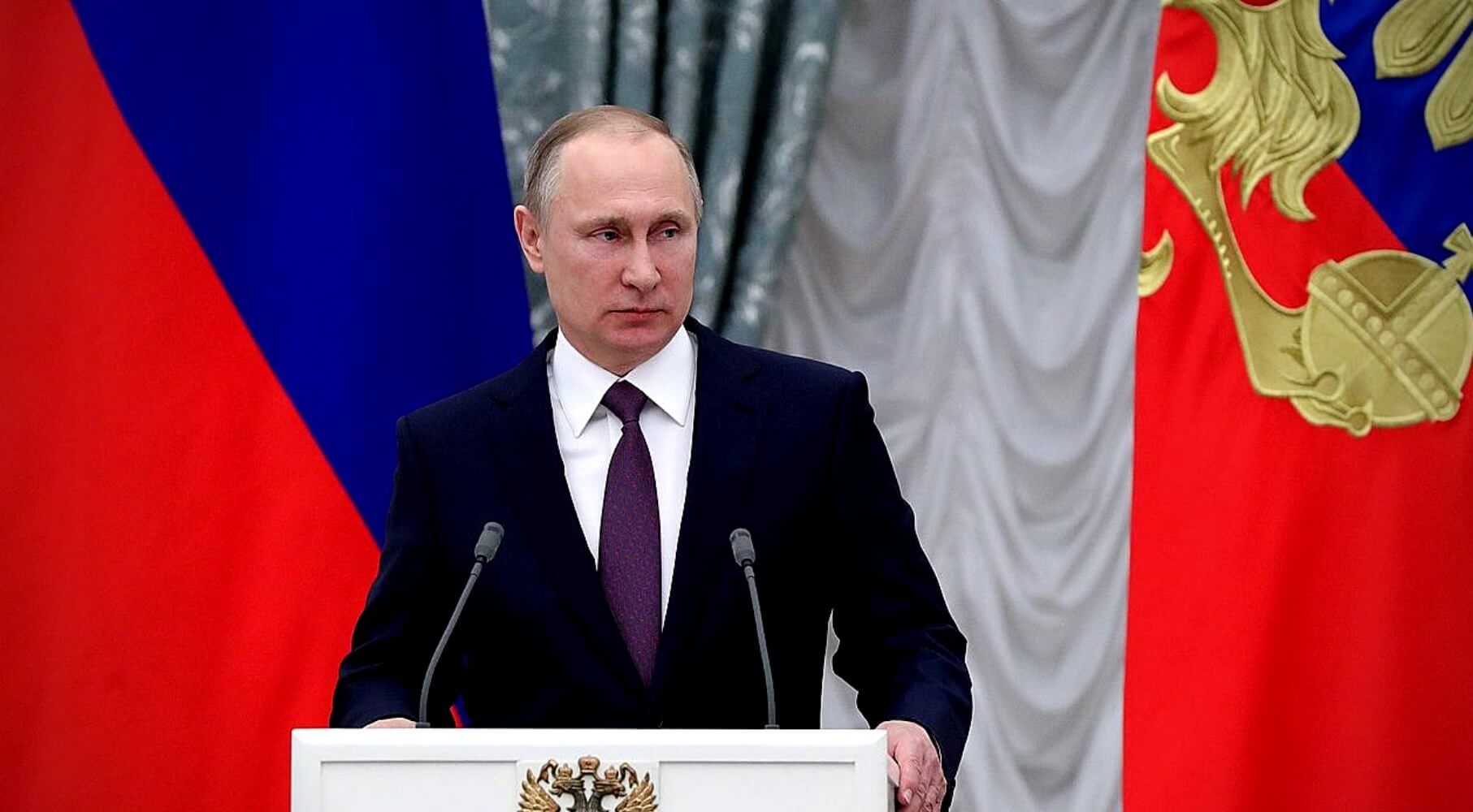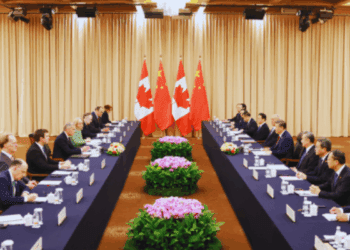 It’s too early to know for sure what Vladimir Putin is hatching, but it looks like he is aiming for a three-pronged system: the presidency, the parliament, and either the State Council of Russia or the Union State Supreme State Council, writes Balkan Devlen.
It’s too early to know for sure what Vladimir Putin is hatching, but it looks like he is aiming for a three-pronged system: the presidency, the parliament, and either the State Council of Russia or the Union State Supreme State Council, writes Balkan Devlen.
By Balkan Devlen, January 23, 2020
Russian President Vladimir Putin announced sweeping changes to the Russian constitution last week that would reduce the powers of the presidency and augment the role of the parliament and the prime minister. Under the current constitution, Putin cannot remain president after his six-year term ends in 2024. This is no doubt the first of a series of changes that will allow Putin to retain power after his term’s end, without openly declaring himself president for life.
The likely next move is granting new powers to the State Council and appointing himself as the head of it, without term limits. He has already called for “enshrining” the State Council while announcing the proposed changes to the constitution. The State Council is an advisory body composed of regional leaders, governors, and presidents of various federal units of the Russian Federation. It advises and assists the president on matters of high importance. This vague mandate can be expanded and strengthened in the new constitution in such a way to give Putin, as the head of the State Council, significant leeway, or even a veto power on matters of strategic importance. Such a move would enable Putin to control the levers of power in Russia, and focus on foreign and security policy, rather than day-to-day business of governing the country.
But Putin might also choose to revitalize the Union State Supreme State Council. This little-known institution is the highest authority in the Union State of Russia and Belarus, a supranational entity created in 1997 with the intention of achieving political and economic integration of Russia and Belarus. So far, despite a few attempts by Russia to strengthen its role, this institution has remained largely dormant, mainly due to the resistance of the president of Belarus, Alexander Lukashenko. But technically there is no reason why, in the new constitution, it cannot be granted new powers and assume a more central role. The leadership of the Supreme State Council is supposed to rotate between the heads of state unless they agree otherwise. It is not difficult to see Putin being appointed as the head of the supreme State Council without any term limits and with increased powers once his presidency ends in 2024.
What is Putin’s plan? It’s too early to know for sure, but it looks like he is aiming for a three-pronged system: the presidency, the parliament, and either the State Council of Russia or the Union State Supreme State Council. Putin plans to control at least two of the three at any given time, to ensure his influence in the direction of the country. His political party, United Russia, remains dominant in the Russian parliament and, with Putin as the chairman of the newly empowered Supreme State Council or State Council of Russia, he will be able to keep the new Russian president, whoever that person will be, in check.
But why? Because Putin faces the same authoritarian’s dilemma that Turkish President Recep Tayyip Erdogan and Chinese President Xi Jinping China face. That dilemma is the problem of succession. In states where political institutions are weak or underdeveloped, the strongmen can generally simply declare themselves as president for life or leader in perpetuity and be done with it. They also rule through large-scale internal repression, and, when regime change happens, it is largely done through military coups.
But in institutionally well-developed states where the leaders still care for some level of popular legitimacy, such as Russia, China, or Turkey, such a route to remain in power is not feasible. However, given their corruption and abuses of power, they cannot simply leave office and enjoy their retirement. Prison or worse remains a distinct possibility, not only for the leader but also for his family and associates. Therefore, they need to find a way to retain power without turning into a tin-pot dictator. Creating new positions or rebalancing power among different state institutions are ways to do this while retaining an aura of legitimacy. Such maneuvers, such as the proposed constitutional changes, also keep the Russian elite guessing and Putin, by not revealing his hand, remains at the centre of any future development.
Whatever his precise steps after this will be, with these proposed constitutional changes, Putin has made it clear that he has no intention of relinquishing real power in 2024. With his announcement, we have started to see the Xi-ification of Putin. We need to come to terms with that, and plan for the fact that Putin and Xi will be with us, barring dying in office, for the rest of the decade.
Balkan Devlen is a senior fellow at the Macdonald-Laurier Institute and associate professor at the University of Copenhagen.




